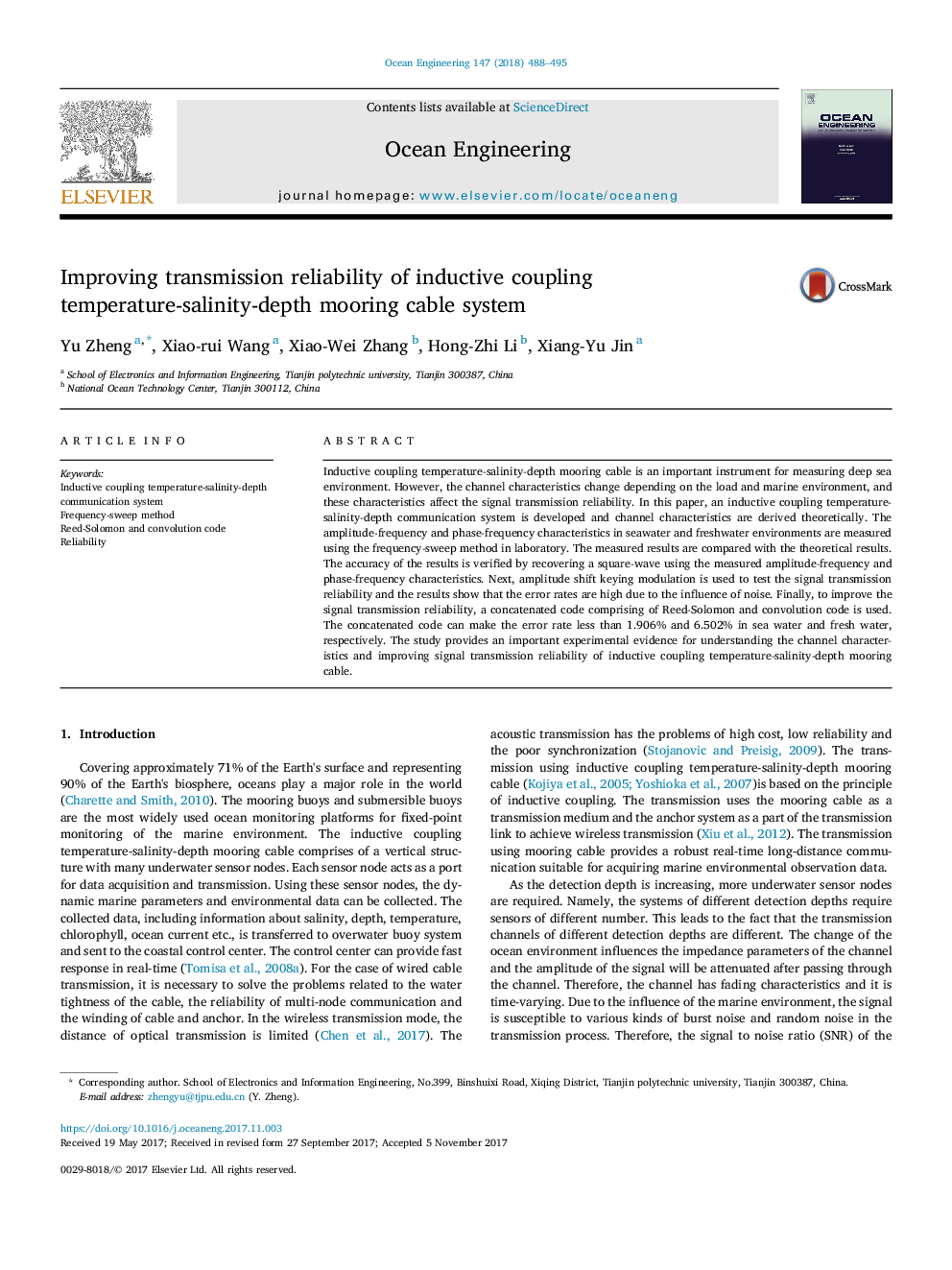| Article ID | Journal | Published Year | Pages | File Type |
|---|---|---|---|---|
| 8063694 | Ocean Engineering | 2018 | 8 Pages |
Abstract
Inductive coupling temperature-salinity-depth mooring cable is an important instrument for measuring deep sea environment. However, the channel characteristics change depending on the load and marine environment, and these characteristics affect the signal transmission reliability. In this paper, an inductive coupling temperature-salinity-depth communication system is developed and channel characteristics are derived theoretically. The amplitude-frequency and phase-frequency characteristics in seawater and freshwater environments are measured using the frequency-sweep method in laboratory. The measured results are compared with the theoretical results. The accuracy of the results is verified by recovering a square-wave using the measured amplitude-frequency and phase-frequency characteristics. Next, amplitude shift keying modulation is used to test the signal transmission reliability and the results show that the error rates are high due to the influence of noise. Finally, to improve the signal transmission reliability, a concatenated code comprising of Reed-Solomon and convolution code is used. The concatenated code can make the error rate less than 1.906% and 6.502% in sea water and fresh water, respectively. The study provides an important experimental evidence for understanding the channel characteristics and improving signal transmission reliability of inductive coupling temperature-salinity-depth mooring cable.
Keywords
Related Topics
Physical Sciences and Engineering
Engineering
Ocean Engineering
Authors
Yu Zheng, Xiao-rui Wang, Xiao-Wei Zhang, Hong-Zhi Li, Xiang-Yu Jin,
